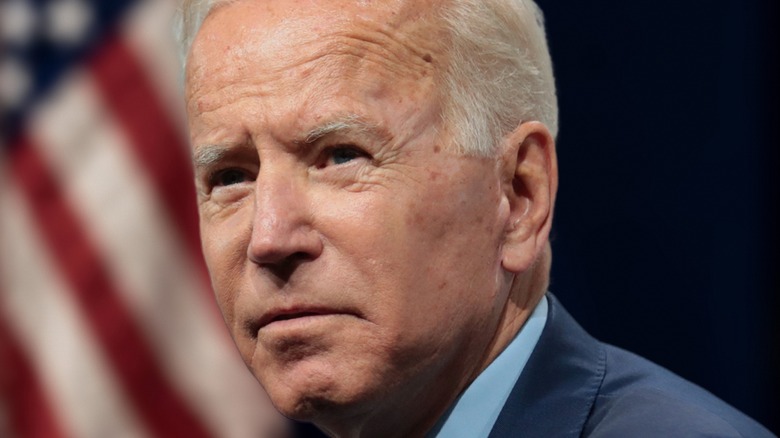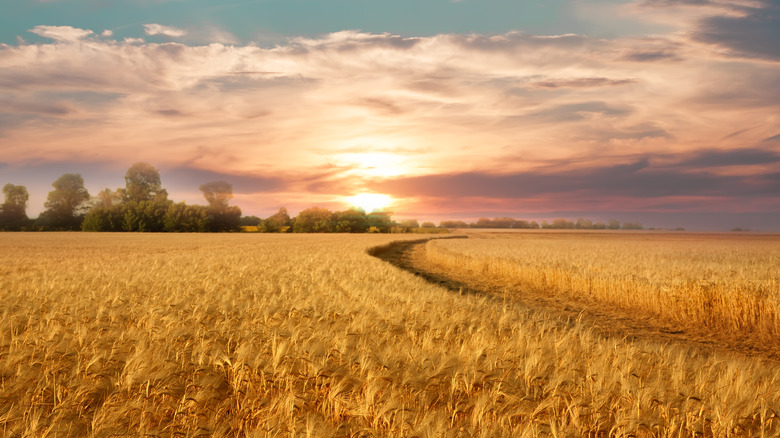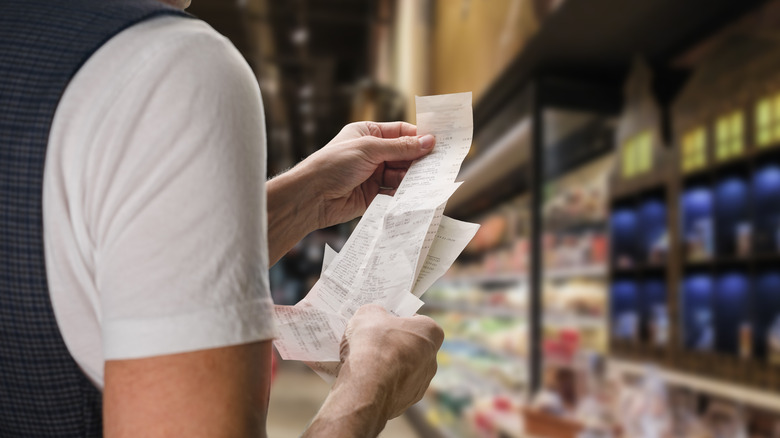Everything You Need To Know About President Biden's Food Shortage Warning
Among its many consequences, the Russian invasion of Ukraine could result in global food shortages, a possibility President Biden acknowledged during a press conference Thursday in Brussels, where he is attending a G-7 Summit with other NATO leaders (via Bloomberg).
"We did talk about food shortages," Biden said. "And it's going to be real. The price of these sanctions is not just imposed upon Russia, it's imposed upon an awful lot of countries as well, including European countries and our country as well."
Although food shortages are a more pressing issue currently in Africa and the Middle East, where, as Bloomberg notes, countries are heavily reliant on wheat from Russia and the Ukraine, ongoing disruptions of wheat, vegetable oils, corn, and fertilizer from the two agriculture-rich countries could eventually result in a host of food-related supply chain issues worldwide.
Thus, as The Hill reports, President Biden and other European leaders are urging an end to trade restrictions and limitations on sending food abroad, with the intention of helping to alleviate global food chain disruptions before they worsen.
Worldwide wheat shortages are imminent
The disruption of the global food chain is only part of the problem, however, as global food prices had already hit record levels before the Russian invasion of Ukraine, according to Farm Policy News. Countries attempting to hoard food in the face of the crisis could cause further complications. As Bloomberg observes, Hungary, Turkey, Argentina, Serbian and Egypt have already threatened to limit grain exports. This is the issue G-7 leaders are trying to head off by loosening export restrictions.
The U.S., meanwhile, is a major wheat producer, as is neighboring Canada. Since President Biden is calling on nations with ample grain reserves to assist in humanitarian efforts, it's expected that the U.S. and Canada, as well as countries like Australia and India, could help to offset the wheat shortages from Russia and Ukraine in the short term. (via Bloomberg)
But at what cost? According to Reuters, Russia and Ukraine combined account for 30% of worldwide wheat exports, and 20% of corn exports. This shortage, even if mitigated by other countries, is likely to affect prices of everyday food items like bread.
What this means for the U.S.
The big problem domestically, as CNN Business reported, is that rising food prices and tightening supply chains were already a major concern before Russia invaded Ukraine. The question now is what happens when pandemic-triggered problems are further exacerbated by the war abroad?
It's an impossible question to answer amid the present uncertainty, the crisis in Ukraine is also raising a host of other tough questions for American farmers (via CNBC). Do they plant more wheat and corn, or is it worth it given the rising cost of fuel and fertilizer? Are the potential profits worth the risk?
This wide-ranging uncertainty is why President Biden and European leaders are in Brussels, looking for answers. As to what American consumers can expect in the near future as the war in Ukraine continues, while there are no current shortages of wheat products in the U.S., according to CNBC, the rising cost of these and other products are adding to already existing economic concerns.


